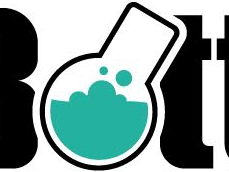Coding should never feel like a burden. Take coding as one of the exciting journeys, as it truly is. No doubt we all need some sort of fun in our ongoing job. Whether it is about working on which theme to choose or it is about making sure we are using python the right way. We need some right insight into the topic. Have you ever found yourself confused with what best python libraries for web development to choose? You have got multiple options but yet you are not able to pick one that is best for you. Come with us, we will take you on a helpful journey. But even before that do you know what are you searching for about Python! Great if you do. But if in case not then here are few things to count on.
Python is one of the helpful and useful languages for coders. Not just being helpful and useful. Python web libraries have replaced many other coding languages from the industry.
How and Why?
To sum up, in one line, Python supports an amazing set of libraries that makes working on codes easy for many.
Here are few more reasons to count on, when python comes into the picture.
- Python facilitates huge library collection.
- Regarded as the language any naive would be comfortable working with. Due to its ease and simplicity.
- Enjoy the ease to be productive with python libraries. Right from development up to deployment and management.
- Hits the goals of portability with ease like none other languages.
- Its high syntax is much enjoyable with a much low learning curve.
- Compare it with C, Java, and C++. You will know python libraries hit some higher level.
What are the Top 7 Python web development libraries to choose from in 2024?
1. Tensor flow

Working on a machine learning project on python? Then this is not new to you. Developed by Google in collab with Brain Team, this is an open-source library. Find it everywhere, whenever Google and machine learning come together.
Why?
- Responsive: Gives you an amazing ability to think and construct anything as you would like to.
- Flexible: Want it to be brought in sync with some there features? or want it to work efficiently while being alone in the race? It offers you both options.
- Easily trainable: Use CPU or GPU to train people well for distributed computing.
- Neural parallel network training: Train multiple neural networks and GPUs. Thus bringing efficient large scale model systems.
- Wide Community: Want some help or need something to be sorted out? The community is as large as the scope of the library!
- Open Source: Got internet connectivity? Use the library then. For as long as you want it.
2. Requests

Need some help or insight while working on HTTP in python? Then this is the best fit for you. Designed and developed by Kenneth Reitz. This one makes things easier for humans. Thus making it one of the most downloaded libraries. Add it easily using pip install requests.
Why?
- Larger compilation: This one is a much larger collection of libraries. Thus bringing more options, varieties and help.
- Ease the process: Aims to simplify the task of creating and sending the HTTP requests to Python applications.
- Intuitive: Its JSON method helps with adding query strings to URLs.This also helps with form-encoding your PUT and POST data.
- Many things under one label: chunked HTTP requests, Connection timeouts, support for SOCKS proxy, connection pooling, keep-alive, and basic and digest authentication
3. Scikit-learn

Working with complex data? Then consider this one. It is a Python library associated with NumPy and SciPy. Use more than one metric. Thanks to its cross-validation feature.
Why?
- Feature extraction: Want to extract data from images or texts? This one is a good catch for this need.
- Cross-validation: Check the accuracy of supervised models on unseen data. This one provides many ways to do the same.
- Unsupervised learning algorithms: Too many algorithms to play with. For example, starting from principal component analysis, clustering, factor analysis to unsupervised neural networks.
4. Bottle

This one from Marcel Hellkamp helps with small web applications development. Helps to put up a fast yet robust web application in no time. It is a small and lightweight WSGI micro-framework. Add to your machine using command pip install bottle. Bottle is a good python library among the best python libraries for web development.
Why?
- Supportive: Routing support for clean and dynamic URLs
- Amazing template solutions: Out-of-the-box support for templates like mako, jinja2, and cheetah. All thanks to its baked-in template engine.
- Backed up with utilities: Form data, file uploads, cookies and headers are well taken care of.
- Independent: Rely on only Python’s standard library. It offers every core feature a web developer would ever need.
5. Keras

Expresses neural networks easily. One of the coolest and portable machine learning libraries in Python. Compiling models, processing data-sets, and visualization of graphs is made easier. Slow as it creates computational graph by using back-end infrastructure. And then leading to operations performance.
Why?
- Smooth: gives a smooth run on GPU and CPU.
- Supportive for all: All neural network models are supported. Like fully embedding, connected, pooling, convolutional, recurrent etc.
- Modular: expressive, flexible, and apt for innovative research.
- Completely Python Based: Thus easy to debug and explore.
6. PyTorch

Created by Soumith Chintala. It provides tools and libraries for developing GPU-powered Machine Learning applications. Use this and make your work with Machine Learning, Deep Learning, and Neural Networks.
Why?
- Flexible: seamless transition to graph mode for speed, optimization, and functionality in C++ runtime environments.
- Popular with other libraries: Deeply integrated into Python. Can be used with popular libraries and packages. Like Cython and Numba.
- Wide community: Tools and libraries extend PyTorch and supporting development. This extends areas from computer vision to reinforcement learning.
7. SciPy

Application developers and engineers rely on this machine learning language. SciPy library and SciPy stack have some differences. SciPy helps to work on integration (calculus), linear algebra, ordinary differential equation solving, and signal to process.
Why?
- Efficient numerical routines: helpful with optimization, numerical integration, and many others using its specific submodules.
- Well Documented: All functions are well documented.
